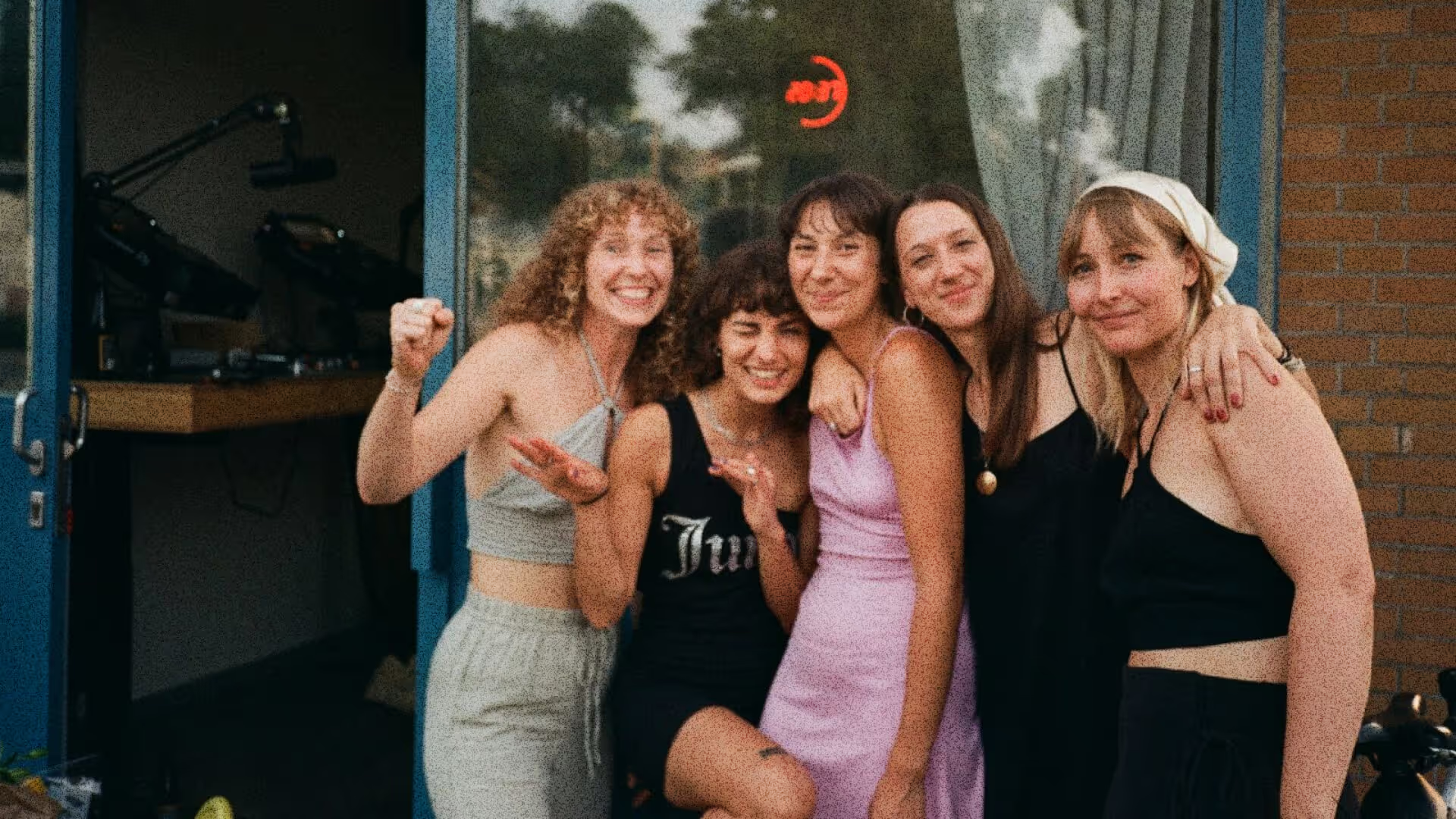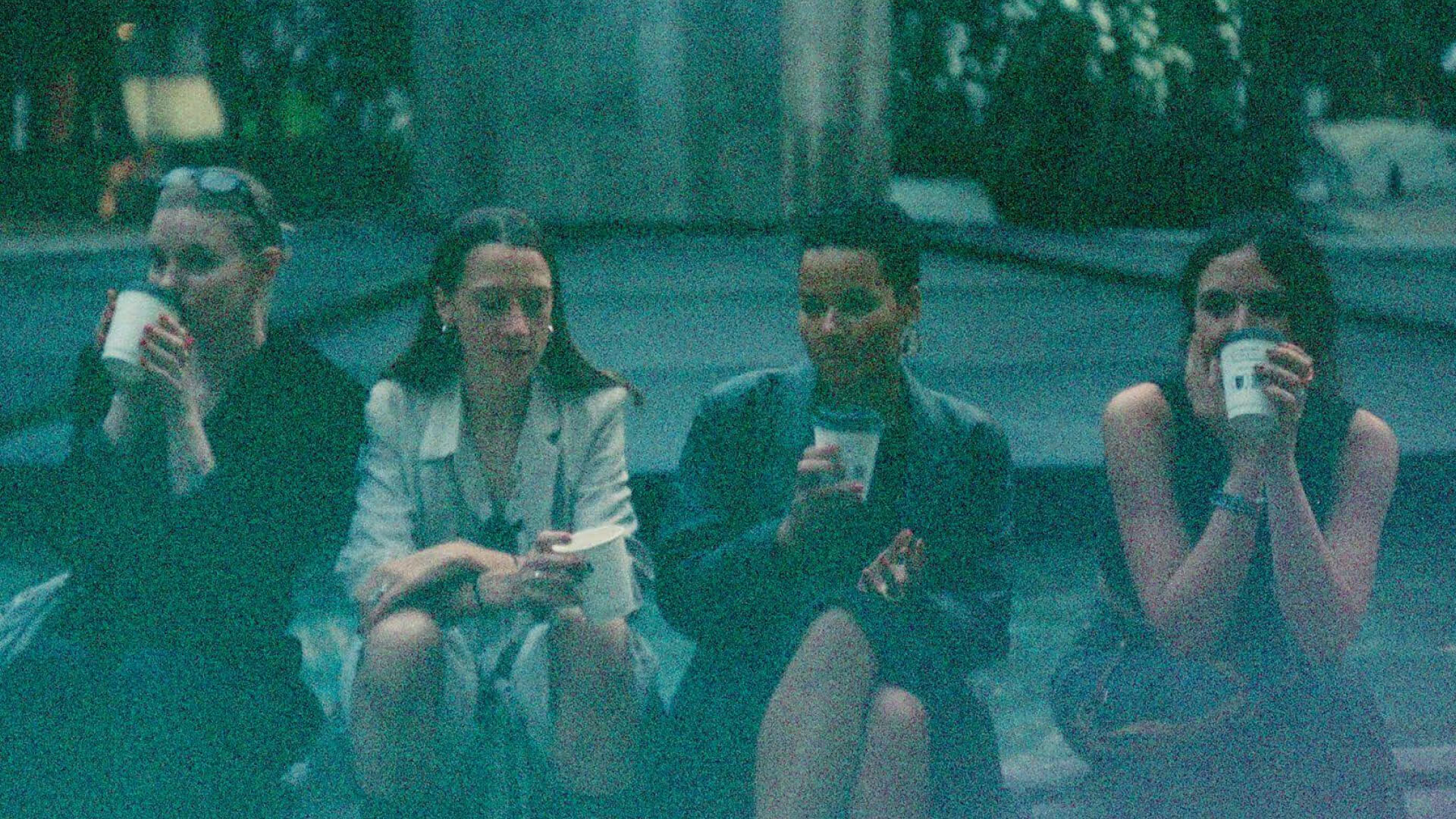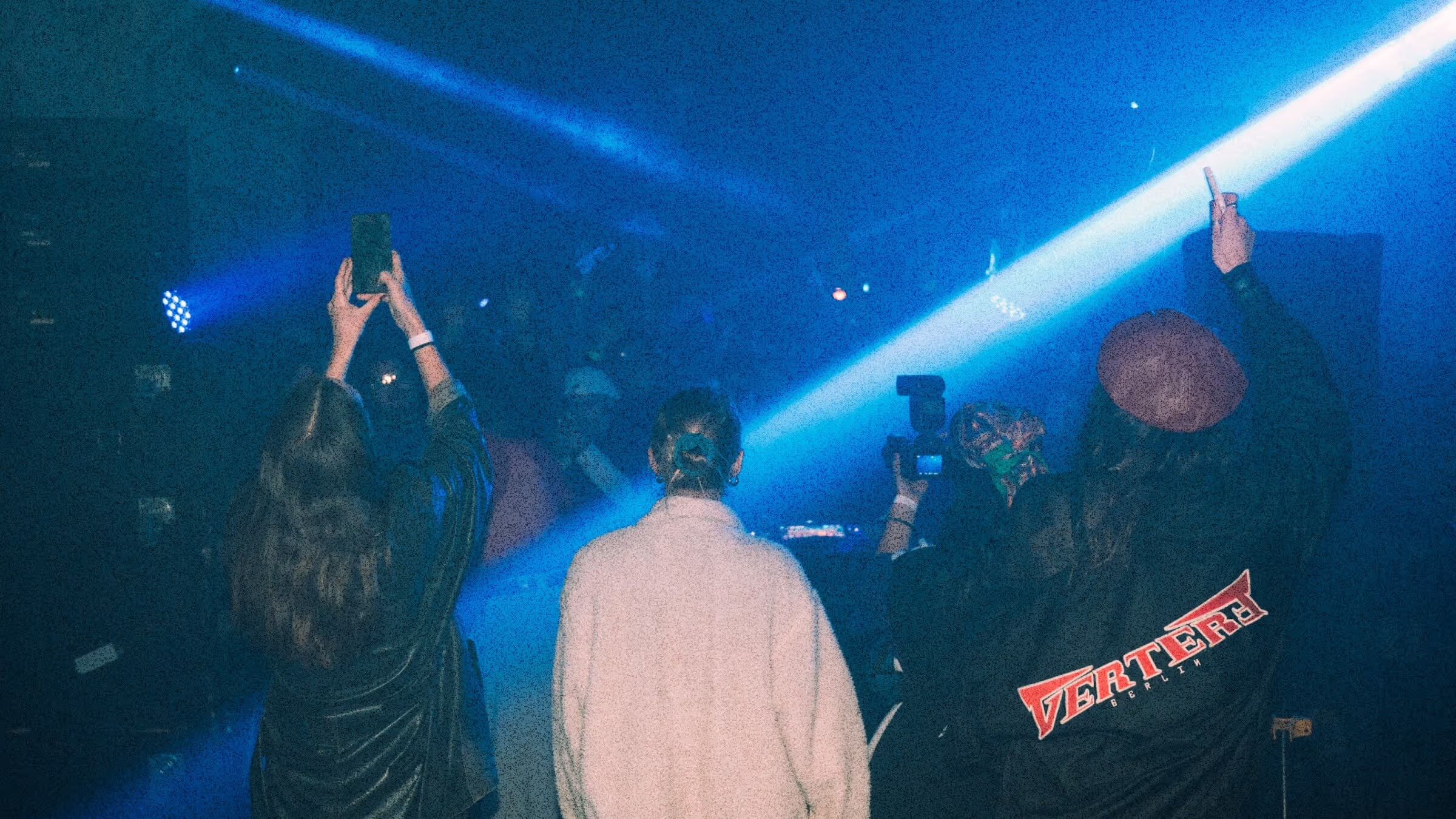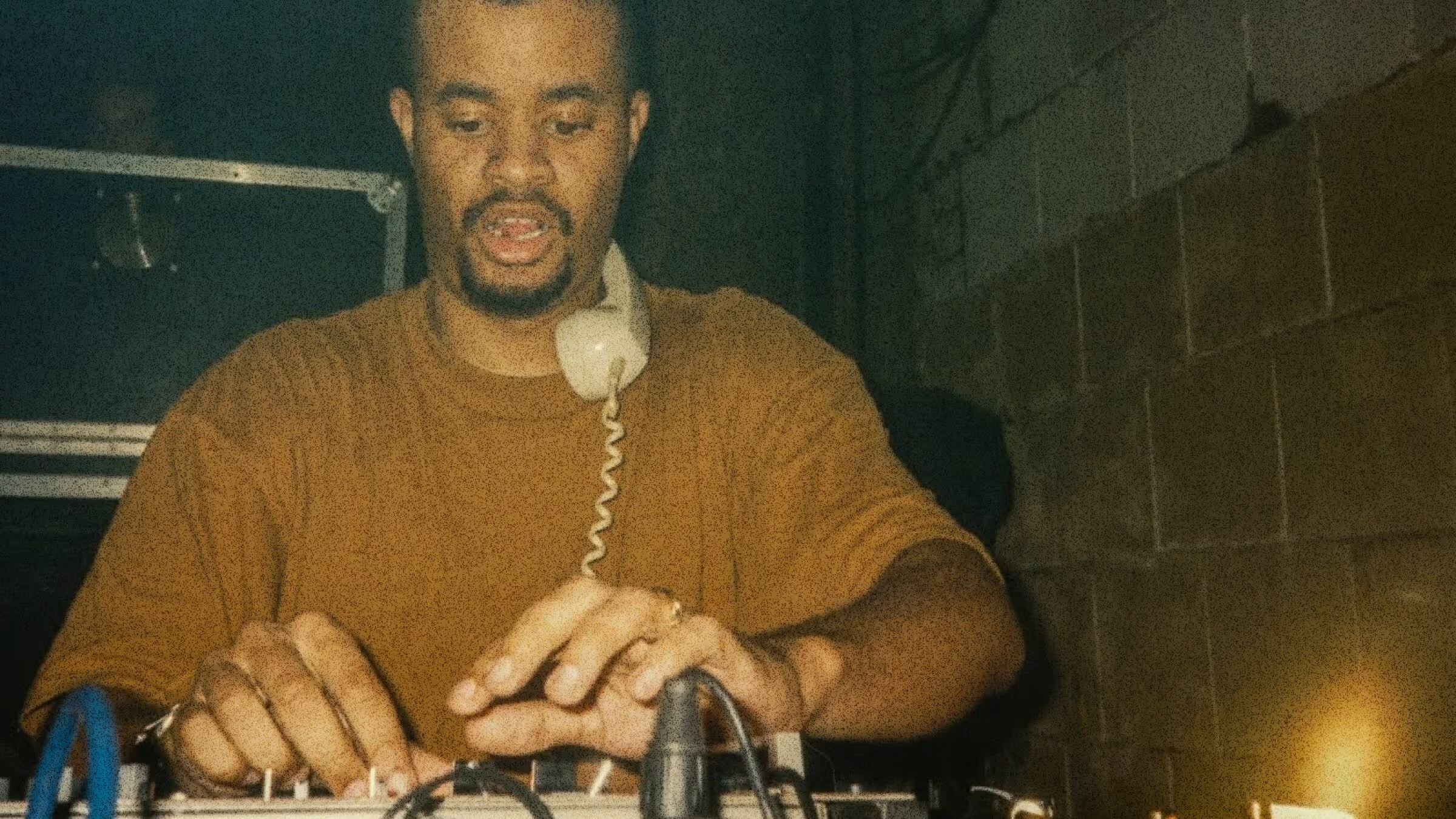In a city where every DJ and producer is hustling for a slot, building real community isn’t exactly standard — sometimes even just the concept feels more like a myth than reality. That’s why when something like CURA Berlin shows up, it stands on its own. Built on intuition, care, and the urgency to do things differently, this is a brief story of how Michelle and the team behind CURA Berlin are reshaping what it means to connect and grow in the electronic booking and events scene — without losing your soul.
Michelle Galleta —the heart and soul of the project— was bartending at Golden Gate when they offered her the chance to throw a party with the DJ Cecilia Tosh. The night just clicked. One for the books? Maybe, but this time it wasn’t an empathy slogan for Instagram. The club recognized the value in this community and decided to give them a residency. That turned into a label. And then came the plot twist that no one saw coming: the pandemic.
While COVID dimmed the lights and silenced dancefloors worldwide, CURA Berlin didn’t slow down. Actually the opposite. In the middle of the apocalyptic-vibe of the pandemic—when the dancefloor felt like a distant sweet dream— Michelle and her crew applied for a Clubcommission Berlin program. The pitch? Legal open-air events, built and run under strict COVID rules. And CURA Berlin hit the jackpot: a massive plot of land just steps away from Warschauer Straße, with trains rumbling by- and space to dream in stereo while the whole scene was on stand-by.

They built everything from the ground: sound, booth, bathrooms, lighting, programming. More than budget or a clear plan, it was mostly raw energy and the need to create. The result: 37 events in six months. No sleep, and for sure no clue how they pulled it off, but they did. And it was a success.
Until it all collapsed. The landowner backed out and gave them one month to clear out their plot. What they had built from scratch suddenly vanished with just a phone call. Although the space had disappeared, the community was alive. The name was known. The vision intact. The energy undiminished.
The end of the venue was the beginning of a new era. Michelle and her team already had the puzzle pieces —they just needed to put them together. And so, CURA Berlin was reborn as a booking agency.
Michelle didn´t start out with a business plan. She came from the bar, the booth, the hustle. What exists now as an agency was built through doing, failing and feeling out as they come. And it still works this way. CURA Berlin escaped from the typical agency structure. It’s not run by Instagram metrics or wanna-be artists. Decisions happen through conversation. Care isn’t a slogan —it’s a strategy, or at least that is the feeling you get while talking with Michelle and Kat Davids, a resident DJ with CURA Berlin, as well as Michelle´s biggest support and best friend.
Kat has a different story, yet same wavelength. She didn’t start out trying to be a DJ, even though she always dreamt of making music.
Her first track got picked up by Amsterdam-based label Intercept Records, encouraging her to release her productions even before playing any official gigs. Something quite hard to find in a scene where everyone wants to rise to fame just for pulling off a couple of good transitions in a DJ set.
Along the way, she founded Various Femme* —a space to share music, doubts, and ideas. A soft landing for women and non-binary folks. It started after one of her first official club bookings with no real plan, just the urge to connect, share and exchange.

That’s why spaces like Various Femme* matter. They’re born from real needs. Kat started to share tracks, tech tips, links. No branding. No agenda. Just community. It grew into a collective with workshops, radio, and room to be messy.
Michelle and Kat didn’t just click musically — they shared a way of moving through the scene. One that values trust over status, listening over noise, and time over hype. At CURA Berlin, there are no rigid hierarchies. Just conversation, care, and decisions made side by side. It feels like, on the inside, they operate like a collective — but moves through the scene like a booking agency. A balance that seems pretty healthy if you ask me.
For CURA Berlin it seems clear: you can build a professional career without losing your humanity. You can grow without stepping on others. The scene won’t change from the top, but someone needs to start. And as Michelle puts it: “As long as you don’t turn into an asshole, karma will do its thing.”
It’s Not a Quota, It’s a Standard
Diversity in line-ups isn’t revolutionary anymore —it’s expected. And that’s good. But somewhere between the good intentions and the box-ticking, not all bookings glow with the same authenticity.
Yes, things have changed. The needle is moving. Women, queer folks and any artists who don't fit the white, hetero mold are gaining recognition. But how do you tell the real invitation from the token slot? Tricky. Still, it seems to me that CURA Berlin has developed a sixth sense for it.
Michelle is quite clear: they don’t take gigs just to fill a quota. Everything goes through conversation. If the offer feels shallow, it probably won’t pass.
And she brings that same energy into her bookings. There’s no formula. No branding gimmicks. When people ask if CURA Berlin is a women-only agency, she says no —but doesn’t rule it out for the future.
“I’m still figuring that out,” Michelle admits. “Right now, I go by connection and potential.”

It’s not about building a girlboss empire. It’s about walking alongside real processes, offering fair terms, and being there when the questions show up. No moralising. No saviour complex. Just active listening —a rare combo in the booking ecosystem. Yet quite fresh.
Maybe that’s why the words on CURA Berlin´s website feel so fitting: Curate. Connect. Include.
“Only 11% of releases are by women”
“Only 11% of releases are by women,” Kat points out. But there’s no shortage of talent. She names Steffi, Eris Drew, Octo Octa —and the list goes on. The problem is especially accessibility. Spaces to explore and learn and find out that if you’re curious to make music, you can do it. Spaces where you don’t have to constantly prove you deserve to be there.
So yeah, CURA Berlin is still a booking agency operating in a fast, heavy, high-demand scene. But they’re not just playing along — they’re bending the structure. Maybe not burning it down, but definitely shifting the frame. One where playing gigs matters — but only if they’re on your terms. One where professionalism doesn’t mean becoming part of the machine, but reprogramming it from the inside.
And maybe—just maybe—a little bit of karma.
Frequencies with Michelle & Kat
C: What kind of artists does CURA Berlin represent?
Michelle: We’re a young agency, so pretty much everyone on the roster came through friendships or personal connections. I’m really into house, but we also represent classic techno. No trance or anything like that. I do get a lot of submissions from women, and I’m still figuring out whether I want the agency to be exclusively female. For now, I just go with what feels right —connection and potential.
C: So you’re not actively aiming for an all-women roster?
Michelle: No, I’d rather let it happen naturally. Since we’re small, I work with artists I see potential in and where I also feel I can grow alongside them. I make most decisions based on intuition —and I lean on Kat a lot when it comes to the music side. She has deep knowledge. I bring the networking and strategy side.
C: What do you look for when thinking of bringing someone into CURA Berlin?
Michelle: That they make me feel something. I don’t care if they’ve got a million plays or none. If there’s something honest in what they do, everything else can be built. I’m not looking for finished products —I’m looking for living processes.
Kat: Also curiosity. Someone who’s not afraid to ask, to experiment, to evolve. This scene can be harsh, so more than perfect technique, I value openness and work ethic.
C: One day you just realized you were a professional booker?
Michelle: Exactly. We never sat down to make a plan. Only now, this year, I’m starting to think about real strategy, sustainability, business models, that kind of stuff.
C: How do you balance community and economic sustainability?
Michelle: That’s my main goal this year. I want CURA Berlin to be financially solid without losing its soul. So far, it’s working. If you give, you receive. I met a promoter in Mexico who now books CURA artists in Montreal. You can’t plan that kind of thing —it just happens.
Kat: Shelly’s always helping people outside of the roster too. Sometimes I feel like she can’t help herself - if she sees a way to help, she will try to squeeze it into her day. This worth ethic can lead to others wanting to help you too when the time comes.
C: What would you want someone to say after working with you?
Michelle: That they felt heard. That there was honesty —and warmth. That beyond the gig or the fee, there was a real human process.
Kat: That they felt the love in what we did. That it worked, and that it felt good. Because in this industry, sometimes that’s already a lot.
C: Where do you see CURA Berlin in five years?
Michelle: I’d love it to be recognized globally —as a space for collaboration, community and talent. I don’t want a standard agency. I want a hybrid, a collective. Like a big umbrella where different projects can live, without losing the human side.
C: Sounds more like a collective than an agency…
Michelle: Totally. There’s still structure and decisions I have to make, but it’s all rooted in community. I don’t want to be the kind of agency that rejects offers because they’re under a certain amount. At CURA Berlin, artists are always informed and they make the call.
C: Would you open a physical space again?
Michelle: Not like before. That was intense. I’d rather have collaborative bases in different countries —places we can use when needed, like the THF Radio station. Something lighter, more sustainable.
C: And how would you want people to see CURA Berlin?
Michelle: As an agency that delivers quality with humanity. That people trust our taste —and how we work. I hope bigger agencies see us as the ones who spot new talent and help it grow. I don’t want to hold anyone back, but I do want to find a fair way to honor the work we’ve put in. I don’t have the answer yet. But I believe there is one.
C: Finding humanity in the music industry…
Michelle: Yep. And as long as you don’t turn into an asshole, karma will do its thing.









